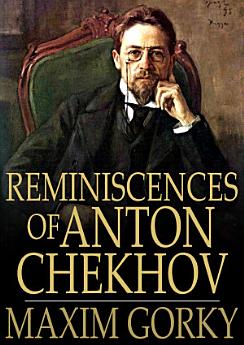Reminiscences of Anton Chekhov
apr 2016. · The Floating Press
E-knjiga
73
Broj stranica
family_home
Prihvatljiva
info
reportOcjene i recenzije nisu potvrđene Saznajte više
O ovoj e-knjizi
Maxim Gorky achieved literary acclaim in Russia against all odds. Orphaned at a young age and forced to fend for himself on the streets, Gorky had virtually no schooling, but he managed to capture the imaginations of readers through his intensely realistic descriptions of the hardships faced by the impoverished and marginalized. From the very beginning of his career, Gorky maintained a correspondence with Russian literary luminary Anton Chekhov, which later blossomed into a lasting friendship. This volume some of Gorky's impressions of Chekhov, as well as those by fellow Russian writers Aleksandr Kuprin and Ivan Bunin.
O autoru
Alexei Maximovich Peshkov, better known as Maxim (Maksim) Gorky, was born on March 28th, 1968. Until the recent collapse of the Soviet state, Gorky was officially viewed as the greatest Russian writer of the twentieth century---an evaluation far above the true measure of his nevertheless considerable talent. Proclaimed the founder of socialist realism, he significantly influenced many Soviet writers, as well as others in Europe and in the developing world, and his works were for decades part of the Soviet school curriculum. His formal education was minimal. From the age of 11, he fended for himself with a variety of jobs. Self-taught, he published his first story, "Makar Chudra," in 1892. His first collection, Sketches and Stories (1898), is a romantic celebration of society's strong outcasts---the hobos and the drifters---and helped to popularize such literary protagonists. Foma Gordeyev (1899), Gorky's first novel, depicts generational conflict within the Russian bourgeoisie. A popular public figure on the left, Gorky was often in trouble with the tsarist government. During the 1900s, he was the central figure in the Znanie publishing house, which produced realist prose with a social conscience. Some of his own works were extremely successful. The play The Lower Depths (1902), set in a poorhouse and a strong indictment of social injustice, was not only a staple of Soviet theater but also influential in the United States. Eugene O'Neill's The Iceman Cometh was influenced by it. The propagandistic, extraordinarily influential novel Mother (1906) presents an iconic working-class woman who is transformed into a saint of the Revolution; its optimism in the ultimate triumph of the cause made it a prototype of socialist-realist fiction. During the years prior to 1917, Gorky published a number of autobiographical stories: All Over Russia (1912--18) (also Through Russia) and his memoirs; My Childhood (1913--14), My Apprenticeship (1915--16), and My Universities (1923). This trilogy shows his art at its best and includes some very lively reminiscences of such writers as Tolstoy and Chekhov. Although a Bolshevik party member since 1905, Gorky strongly criticized the new regime after the October Revolution: His collected articles from 1917-18, Untimely Thoughts, remained unpublished in the Soviet Union until recently. A cultural activist, he helped to save the lives of many writers, artists, and scholars during the cold and hungry years of the civil war. In 1921 he left Russia for Italy but returned permanently a decade later, recognized as the grand old man of Soviet literature. He then worked for Stalin's economic policies and presided over the institutionalization of socialist realism. At his death, he left unfinished a major novel of considerable interest, The Life of Klim Samgin, which he had been working on since 1925.
Ocijenite ovu e-knjigu
Recite nam šta mislite.
Informacije o čitanju
Pametni telefoni i tableti
Instalirajte aplikaciju Google Play Knjige za Android i iPad/iPhone uređaje. Aplikacija se automatski sinhronizira s vašim računom i omogućava vam čitanje na mreži ili van nje gdje god da se nalazite.
Laptopi i računari
Audio knjige koje su kupljene na Google Playu možete slušati pomoću web preglednika na vašem računaru.
Elektronički čitači i ostali uređaji
Da čitate na e-ink uređajima kao što su Kobo e-čitači, morat ćete preuzeti fajl i prenijeti ga na uređaj. Pratite detaljne upute Centra za pomoć da prenesete fajlove na podržane e-čitače.





